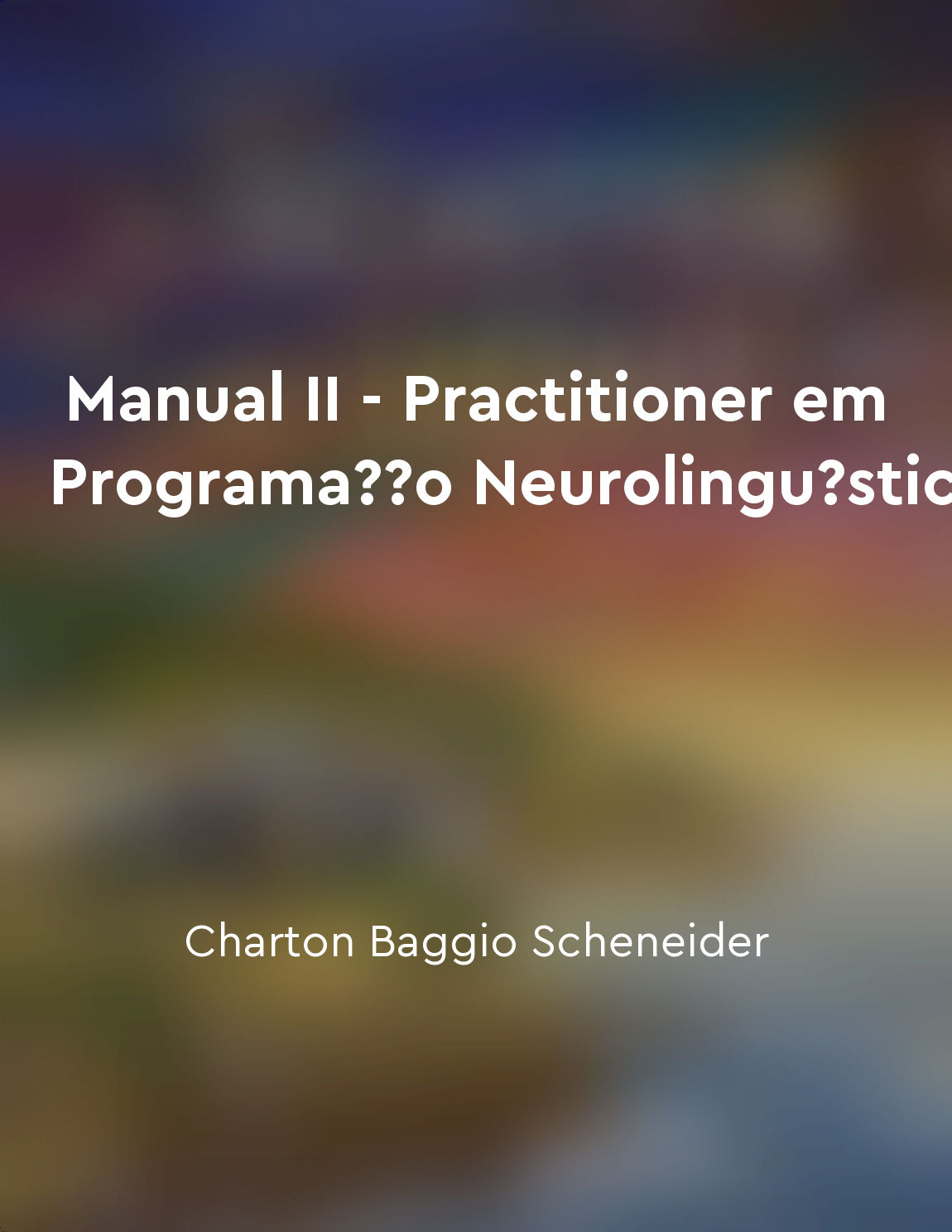Locutionary acts involve the literal meaning of words from "summary" of How to Do Things with Words by John Langshaw Austin,J. L. Austin
When we speak, we often assume that our words are understood in a straightforward manner. We expect that the literal meaning of our words will be grasped by the listener. This assumption underlies what is known as locutionary acts. These acts involve the simple act of saying something, where the words used carry their literal meaning. In the realm of language, it is crucial to recognize the distinction between what is said and what is meant. Locutionary acts focus solely on what is said, on the literal meaning of the words that are uttered. This is the basic building block of language, the foundation upon which furt...Similar Posts

NLP techniques for goal setting and achievement
Goal setting and achievement are essential components of success in both personal and professional life. In the field of Neuro-...
Identity is uncertain
According to David Hume, the concept of identity is a complex and perplexing one. He argues that our understanding of identity ...
Learn to improve your vocabulary effortlessly
The key to expanding your vocabulary effortlessly lies in making a conscious effort to expose yourself to new words on a regula...

The quest for knowledge requires intellectual curiosity and a willingness to challenge assumptions
Intellectual curiosity is the driving force behind the quest for knowledge. It is the desire to explore, to question, and to un...
Our instincts can be influenced by education and upbringing
Instincts are often thought of as innate, hardwired behaviors that we are born with. Yet, as we delve deeper into the science o...
Embrace imperfection in communication
Communication can be a messy business. It's never going to be perfect, and that's ok. In fact, it's more than ok - it's actuall...

NLP techniques can improve relationships
NLP techniques offer powerful tools for enhancing relationships with others. By utilizing NLP strategies, individuals can impro...
The more words you know, the more confidently you can express yourself
The ability to express oneself confidently is a valuable skill that can greatly impact one's personal and professional life. A ...

Language can be used for a variety of purposes, including storytelling, persuasion, and instruction
Language serves multiple functions beyond simple communication. One of the primary purposes of language is storytelling - the a...
Embrace vulnerability to cultivate trust and collaboration
To truly build trust and collaboration within a team, leaders must be willing to show vulnerability. This means being open abou...
